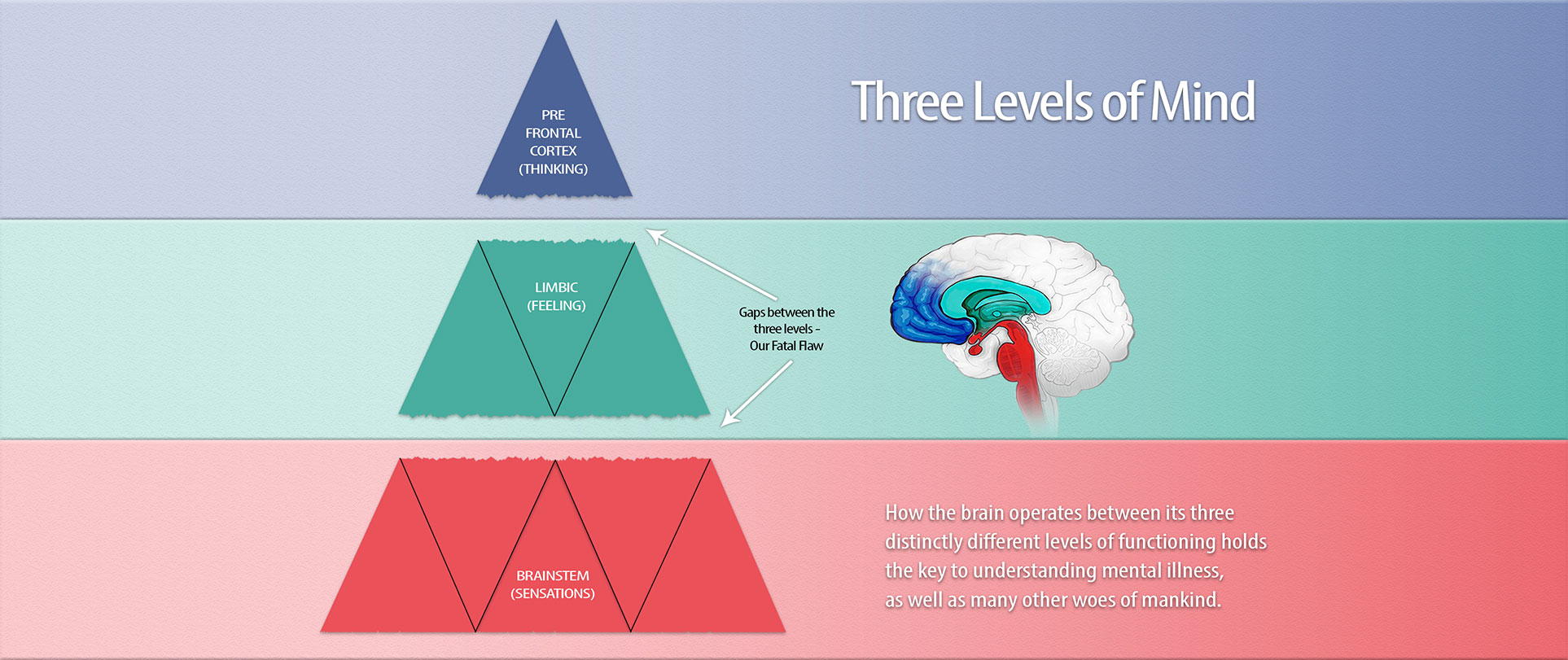Like depression (see previous post) anxiety is better understood from the Three Levels of Mind. Also like depression, the current medical model does not understand what the causes of anxiety are and therefore the common treatments are also reasonably ineffective. They treat the symptoms and not the causes. Treating symptoms is dealing with the 3rd level of mind (cognition) when the cause is traumatic imprinting at the 1st level (sensations).
Anxiety has many different degrees of effect, such as low grade Generalised Anxiety Disorder (GAD), and ranging up to severe panic attacks.
From the perspective of three levels of mind, anxiety is a function of the 3rd level. However when a primal patient presents with an anxiety issue, it is usually traced back, during therapy, to an experience of sheer terror at the 1st level. Reliving this terror in small increments gets it out of the system permanently.
Go down to your local book store and most books in the self-help section will try and teach you ways of overcoming your fear. Fear, it seems, is the number one obstacle in leading the life we all desire.
Fear of life is imprinted in a child’s brain early in life. For example my father was a violent unpredictable man, so I lived my whole childhood in fear – fear of upsetting my father, fear of expressing myself in voice, fear of him killing my mother and younger siblings – I even have a fear of deep water because I was not allowed to try and swim in water above my knees.
Even today there are many parents who parent in a way that instils a fear of life into their children. They may do so with the intent of keeping the child safe, but overstep the line between safety and letting the child be adventurous. The birth process is another common way that terror can be imprinted in a young brain.
Living a life of anxiety means that we repress our natural instincts, and therefore are not able to savour the beauty of a life fully lived. It means that we don’t embark on new experiences and are fearful of stretching ourselves into new and exciting places, both inwardly and outwardly. It really means we don’t give ourselves a chance.
Many of us see uncertainty as intimidating because we have been imprinted not to take a risk in expressing ourselves fully, because when we did so in the past our parents became angry, critical or showed their disapproval – or perhaps no interest at all!
A hidden factor in the increase of anxiety disorders comes from the fact our culture does not place much importance on the need to nurture children in a loving way. Instead most of the focus is put on academic achievement, or achieving certain developmental stages on time, or preferably before everyone else.
Love is a first level function within the human brain, and all a child needs is love from its parents. If they receive this love they grow into well-adjusted adults. The research under the umbrella of Attachment Theory and more recently Adverse Childhood Experiences (ACE) highlight the importance of love, especially in the first years of life. The missing link in this research is that the researchers obviously do not understand the three levels of mind in human functioning, plus they lack a testable definition of what love actually is, and the force (feeling) it carries.
Many parents push children to become academically successful, not realising academics is a function of the 3rd level of mind. Most children want to learn, but in all cases and all stages of development their greatest need is love, which is then imprinted on the first level. Unfortunately our society pushes its children to perform, and when they are unable to meet the parents and/or societies expectation, they become anxious about losing their parents love. In extreme cases students will suicide if they feel they are a failure.
Where there is pure love there is no fear and anxiety.
